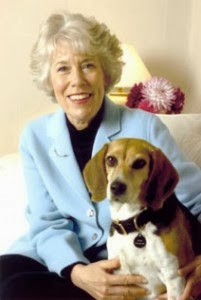“Your Association Shortcut” authored by Robert Skrob, CPA,
CAE , helps businesses and entrepreneurs
navigate the insider society and internal processes used by more than
100,000 professional and trade societies .
It is a complete guide on how to find associations, identify the best
ones for your brand and position yourself to be of value to an association and
communicate effectively so that the association in return endorses your company
or product to their members. “Your Association Shortcut”, www.YourAssociationShortcut.com reveals the strategy and tools for succeeding
when entering the world of America's extensive association community explaining
in detail the mind- set, who is in charge, finding ways to be of value to an
association and enhance their membership before a business requests an
endorsement.
Skrob has run numerous successful trade shows and witnessed
the phenomenon first-hand. His company, Membership Services Inc., is an
association management company that during the past 10 years, has worked with
over 20,000 associations in boardrooms and classrooms. Robert has coached a
diverse range of associations, some of the largest in the world, including:
medical, manufacturing, fraternities, chambers of commerce at the local, state
and national levels.
He has also led sessions, facilitated strategic plans, and
conducted operational audits for associations. Robert has helped thousands of
companies tap into the power of associations to generate customers for their
own business. Robert began coaching exhibitors on best practices so they were
prepared to understand how to best benefit the association and be a valued
company to the, He developed a handbook of ‘shortcuts’ for working with any
kind of association in order to grow a customer base.
“Associations are the affiliate partner you never knew you
had, promoting your company as a member benefit,” says Skrob. “Plus, association
marketing gives you more credibility as everything you do carries the implied
endorsement of the association.”
Q) Are associations and what is association marketing?
A) Associations are groups of people with a similar
interest. They are often organized around industries (such as the Air
Conditioning Contractors of America) or professions (such as the American
Medical Association). They may also be organized around interests (such
as the American Running Association or the American Diabetes Association) or
around a demographic (such as AARP.)
There are 5 ways to market to the members of
associations.
Join- Get yourself into the same stream of information your
customers enjoy, and learn as much about the industry as the individuals you
are marketing to. As a member of the association, you’ll receive newsletters,
email notices and, often, access to the association’s members-only website with
additional resources.
Participate - Association events provide a lot of ways for
you to meet and interact with your prospective customers. For many, attending
events provides the opportunities they need to interact with customers. For
additional exposure, exhibiting or sponsoring events elevates your presences
and brings you to the attention of your best prospects.
Contribute - Take advantage of the opportunities that
associations provide you to contribute to the community by submitting articles
for association publications as well as making presentations at association
events.
Affiliate - Develop an endorsed provider relationship with
associations to provide them with a membership benefit they can promote to
their members.
Partner- Build a platform where the association can recruit
and retain members while you grow your company.
Q) Who should be thinking about marketing through
associations?
A) Any company, small business owner, entrepreneur or
blogger that could benefit by marketing to a group of people with a
defined industry, profession or interest. If you are able to tailor your
message to a particular niche interest group, then associations provide you
with a great way to reach that group.
A lot of companies already market through associations,
every day there are thousands of people attending association events, trade
shows and contributing to association newsletters. There’s never been a
step-by-step guide for showing how to do it until now.
Q) You say there are 1.9 million associations within the
United States; shouldn’t we be marketing to them as potential customers?
A) Sure, but the people offering products and services that
associations consume is a lot more narrow than the number of people who could
benefit by marketing through associations to their members.
Q) What do you mean when you say, “Associations will do all
of the marketing for you?”
A) Member benefit programs – Associations are always looking
for new incentives they can give their members to get new members to join and
encourage current members to renew. By offering a product or service
that’s exclusively available through the association (usually done with
discounted pricing for association members) the association will endorse your
product to its members. In these programs the association promotes
your product or service to its members together with the members only
pricing. The association uses its media, emails, magazines, website, and
events to promote you along with its other benefits. You are promoted as
the solution to the association members’ problems and you get customers without
all the upfront marketing expenses.













